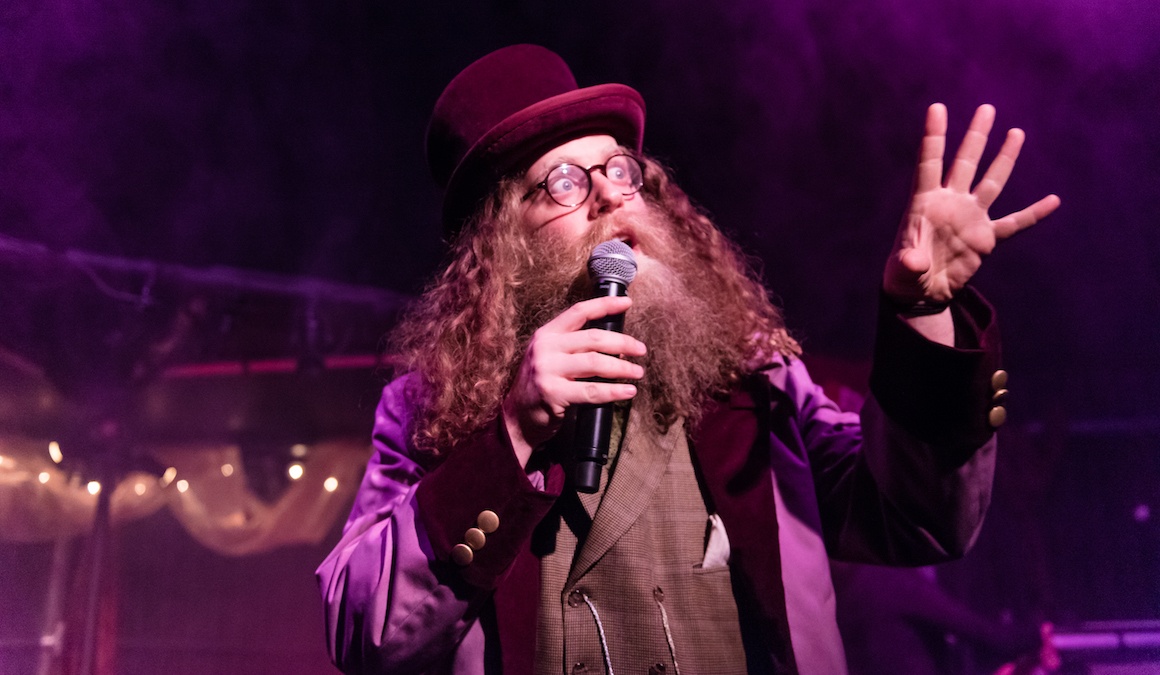Funny, angry, anarchic and moving: Alison Croggon reviews Old Stock: A Refugee Love Story
For reasons mostly to do with poetry, I’ve spent a fair bit of my reading life immersed in religious texts of all kinds. A while back I discovered the Shekinah, a concept that occurs in both Christianity and Judaeism. The Shekinah roughly signifies “the dwelling of God”, although like all religious terms it has a multiplicity of meanings. Like Sophia (wisdom), it’s a feminine principle, and in some readings it signifies “home”.
I remember one exhortation about the Shekinah clearly, although I now can’t source it. When a man returned home from travel, the text said, he must restore the Shekinah in his house by making love to his wife and giving her pleasure.
This stopped me in my tracks: I was so used to the misogyny of patriarchal religions, in which female sexual pleasure is at best suspicious and at worst abhorred, that seeing it explicitly acknowledged as a place where God dwells was, to say the least, surprising. But then again, classical Judaeism lists six genders, including transgender and non-binary, so I guess it’s not so surprising.
Ben Caplan, the narrator of Old Stock: A Refugee Love Story, tells us that there’s a lot of wiggle room in Judaeism, and also that it’s very keen on fucking. I’m not certain there’s quite as much wiggle room as playwright Hannah Moscovitch and Caplan create in this funny, angry and moving show; but then again, I’m not Jewish.
This musical tale of Jewish refugees making a new life in Canada, touring to Melbourne after a season as part of the Sydney Festival, is one of those satisfyingly unclassifiable shows. Moscovitch bases the story on her own great grandparents, Chaya (Mary Fay Coady) and Chaim (Dani Oore), who fled the unspeakable violence of the Roumanian pogroms and ended up meeting in an immigration queue in Halifax. Chaim’s entire family had been slaughtered, while Chaya’s had mostly survived, although her husband had died of typhus, along with her first baby, on the trek to safety.
The story is told in a series of vignettes, punctuated by klezmer songs that are mostly sung by Caplan. He’s a huge, bearded, anarchic figure, a kind of Yiddish Tom Waits. The title points to the underlying reason for the show: it’s drawn from a 2015 comment from the former Canadian Prime Minister, Stephen Harper, who caused a scandal when he referred to “old stock Canadians” in some classic dog whistle politics about Syrian refugees.
Moscovitch, Caplan, director Christian Barry and their collaborators create a performance that moves with astounding deftness, turning on a dime from scatological hilarity to the chilling recounting of atrocity. It’s simply and ingeniously staged: Louisa Adamson and Barry’s design plonks a red shipping container in the centre of the Fairfax stage, which is opened by our showman Caplan to reveal the band, surrounded by their instruments, with a samovar centre stage. Their lighting design is remarkably beautiful and focused, heightening the energy of the dramaturgy.
The politics that’s expressed here is deeply entwined with the solidly embodied Judaeism expressed in the songs: a sense of earthed, lived humanity that is deeply hostile to bureaucratic rigidities and orthodoxies of any kind. We’re constantly asked: what’s true? What’s a lie? What’s a story? What’s this story? We’re reminded that not all endings are happy. We’re reminded that life is complicated.
One of the funniest songs, Truth Doesn’t Live in a Book, recounts the precepts of the oral Bible, according to Caplan the really important text, which include rules such as not smoking your stash if you’re dealing drugs. A reflection on Judaeism’s attitude to sex leads to an increasingly hilarious list of euphemisms – “doing the horizontal greased-weasel tango”, “putting the banana in the fruit salad” – and a discussion on consent and female pleasure.
Chaya and Chaim’s story isn’t your usual romance, but it’s a fable about love nevertheless. It follows them through their marriage, asking whether love is possible when people are as deeply marked by trauma as these two are. The unsentimental answer is, yes, if they give each other a chance, if they’re given a chance. If all of us remember how to be human.
Old Stock: A Refugee Love Story, created by Hannah Moscovitch, Ben Caplan, and Christian Barry; written by Hannah Moscovitch, directed by Christian Barry. Set and lighting design by Louisa Adamson and Christian Barry, costumes by Carly Beamish. Performed by Ben Caplan, Mary Fay Coady, Jamie Kronick, Graham Scott and Dani Oore. 2B Theater Company at Arts Centre Melbourne until February 2. Bookings
Suitable for Ages 13+
Smoke effects, coarse language, graphic language of war
Wheelchair access Assistive hearing Companion Card

